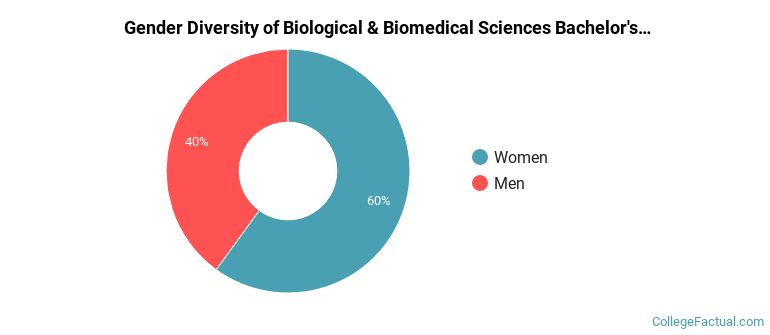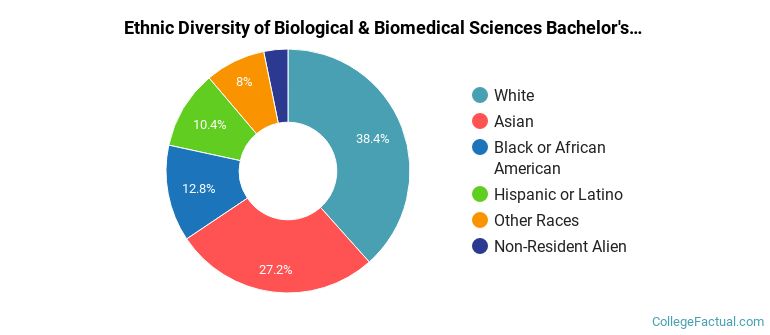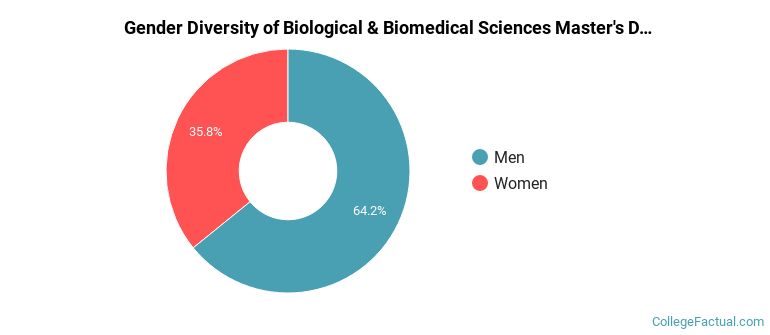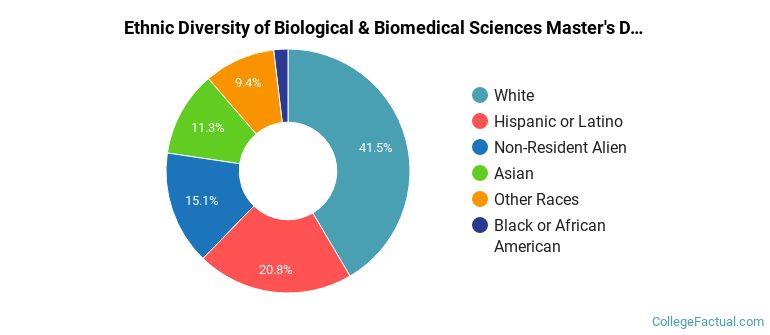 by our College Data Analytics Team
by our College Data Analytics TeamGo directly to any of the following sections:
The biological & biomedical sciences major at Princeton is not ranked on College Factual’s Best Colleges and Universities for Biological & Biomedical Sciences. This could be for a number of reasons, such as not having enough data on the major or school to make an accurate assessment of its quality.
During the 2021-2022 academic year, Princeton University handed out 125 bachelor's degrees in biological & biomedical sciences. This is an increase of 2% over the previous year when 122 degrees were handed out.
In 2022, 55 students received their master’s degree in biological & biomedical sciences from Princeton. This makes it the #88 most popular school for biological & biomedical sciences master’s degree candidates in the country.
In addition, 37 students received their doctoral degrees in biological & biomedical sciences in 2022, making the school the #71 most popular school in the United States for this category of students.
During the 2022-2023 academic year, part-time undergraduate students at Princeton paid an average of $1,926 per credit hour. No discount was available for in-state students. The following table shows the average full-time tuition and fees for undergraduates.
| In State | Out of State | |
|---|---|---|
| Tuition | $59,710 | $59,710 |
| Books and Supplies | $1,050 | $1,050 |
| On Campus Room and Board | $19,380 | $19,380 |
| On Campus Other Expenses | $3,900 | $3,900 |
Learn more about Princeton tuition and fees.
During the 2021-2022 academic year, 125 biological & biomedical sciences majors earned their bachelor's degree from Princeton. Of these graduates, 40% were men and 60% were women.

The following table and chart show the ethnic background for students who recently graduated from Princeton University with a bachelor's in biological & biomedical sciences.

| Ethnic Background | Number of Students |
|---|---|
| Asian | 34 |
| Black or African American | 16 |
| Hispanic or Latino | 13 |
| White | 48 |
| Non-Resident Aliens | 4 |
| Other Races | 10 |
Princeton does not offer an online option for its biological & biomedical sciences bachelor’s degree program at this time. To see if the school offers distance learning options in other areas, visit the Princeton Online Learning page.
During the 2021-2022 academic year, 53 students graduated with a master's degree in biological & biomedical sciences from Princeton. About 64% were men and 36% were women.

The following table and chart show the ethnic background for students who recently graduated from Princeton University with a master's in biological & biomedical sciences.

| Ethnic Background | Number of Students |
|---|---|
| Asian | 6 |
| Black or African American | 1 |
| Hispanic or Latino | 11 |
| White | 22 |
| Non-Resident Aliens | 8 |
| Other Races | 5 |
Take a look at the following statistics related to the make-up of the biological & biomedical sciences majors at Princeton University.
Biological & Biomedical Sciences students may decide to major in one of the following focus areas. Individual majors may not be available for all degree levels.
| Major | Annual Graduates |
|---|---|
| Biochemistry, Biophysics & Molecular Biology | 96 |
| Ecology, Evolution & Systematics Biology | 57 |
| Neurobiology & Neurosciences | 56 |
| Biomathematics & Bioinformatics | 20 |
| Related Major | Annual Graduates |
|---|---|
| Engineering | 478 |
| Physical Sciences | 215 |
| Mathematics & Statistics | 96 |
| Architecture & Related Services | 47 |
| Natural Resources & Conservation | 1 |
More about our data sources and methodologies.